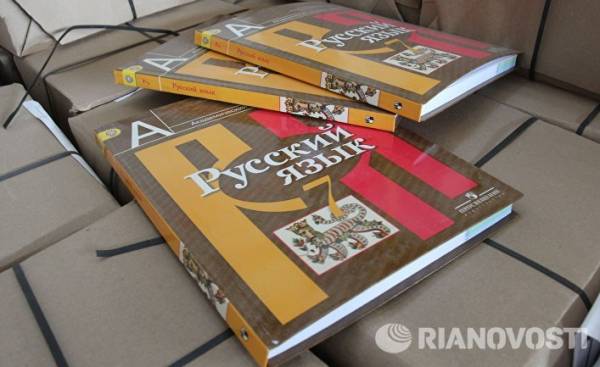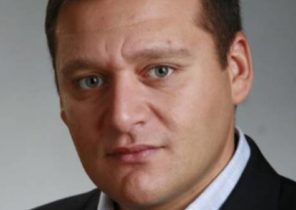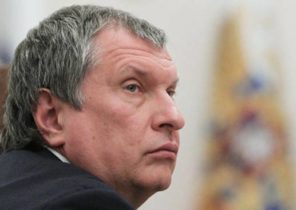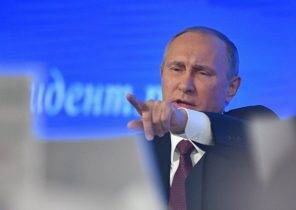
Last week caused a lot of noise the statements of the leader of a famous Ukrainian group “Vopli Vidopliassova” Oleg Skrypka about creating a “ghetto for Russian”. Although the musician then said that he “did not understand” the language policy really caused today with keen interest and remain relevant not only for Ukraine.
By the way, the Ukrainian edition of “Hvil” reasonably pointed out that Oleh Skrypka in this matter is no different from Vladimir Putin, who would also like to maximally unify their country, suppressing its cultural diversity.
I on this occasion I remembered a very different example — two years ago, “Festival of opinion” held in Narva. It mainly discussed the development projects in the Eastern regions of Estonia, and the festival was not even bi-, and trilingualism: in addition to Estonian and Russian, some experts spoke in English. And that was very revealing — when vzaimodeistvie topics discussed, the language difference goes by the wayside, but all seek to understand each other.
However, in recent years in some former Soviet and Russian republics dominates the other, the authoritarian approach, which can be described as ethnocratic. It is simply a mirror image of Imperial Russification of the Soviet years. They say, if then we were forced to learn Russian, today we are going to do the same forcing the Russians to learn our “titular” language. But the forced nature of such a policy does not change.
Moreover, her supporters somehow forget that any coercion sooner or later turns into rejection. Numerous peoples of the Soviet Union, which the Kremlin tried to Russify, did not become “Russian”, but in the end rebelled against the Kremlin. But attempt (to deprive local Russians of their own identity) is unlikely to lead to any different results.
Back in January was a strange and disturbing information about the initiative of the all-Tatar public center — to raise the status of Tatar state language they propose to deprive of the status of Russian. That is — to expand the rights of the Tatar language is not offered at the expense of his own development, and at the expense of the linguistic rights of other peoples. Although the Russian population of Tatarstan, amounting to 39,7%, is on site no less indigenous than the Tartars, of which 53.2 per cent (census 2010 — approx. of the author).
If this initiative materialize, this clearly will lead to a resurgence of ethnic conflict in the Republic, which she still managed to avoid. In addition, Moscow will probably use this aggravation to further centralization and eventual elimination of federalism — under the pretext that in the regions de “do not know how to build national relationships.”
The history of Finland, which peacefully coexist two official languages — Finnish and Swedish — post-Soviet ethnocratic teaches nothing. In December, the country celebrates the 100th anniversary of its independence, but it became possible not only thanks to military talent Mannerheim. Finnish independence grew out of the cultural revolution of the mid 19th century, which created a fundamentally new national consciousness, which put Finland on the level of European countries, with their unique and independent cultures. And modern Finnish culture (in movies and music, for example) by European popularity even pushed the Swedish…
Post-Soviet ethnocracy sometimes appeal to the principle of “positive discrimination”, without which, in their opinion, small culture will be suppressed are large. However, this principle does not find in modern countries a wide distribution. Small culture win its “place in the sun” in other ways, rather than any state preferences. It is useful to recall the experience of Catalonia, where Catalan language was given official status only in 1979, after the fall of Franco’s dictatorship. However, no positive discrimination in favor of Catalan there at the state level is not carried out, but this is impossible, and demographically — ethnic Catalans considers himself only 35% of the population, whereas 45% of Spaniards. In modern Catalonia Spanish and Catalan are used completely equal (all paperwork, road signs, etc. in two languages), however, intensive development of the Catalan language in recent decades due to the efforts of the Catalan society. Do Catalans write it textbooks, fiction, singing, filming movies, hold festivals, etc. Is creative language revival looks striking contrast with the position of many post-Soviet ethnocrats that on the Soviet habit still expect for all of them make the state.
The forced imposition of a language at the state level may not be the tool of a full integration of different ethnic groups, but will inevitably cause conflicts. Although long since known other really positive technology is of interest. For example, the English language has become globally popular and even fashionable among young people not because the US government ordered (note, by the way, a curious fact — in the US, English is the official language), and thanks to the world of rock-n-roll. Today different countries, nothing prevents to use a similar, creative and motivate technology in promoting their languages. By the way, in this respect, quite revealing and effective online course of Estonian language Keeleklikk, is based on a playful and interactive approach rather than dull rote learning.
But in General, the integration of the Russian population in companies of European countries absurdly restricted to “the language issue”. You can be “Russian, but not Russian” is well proved by the Nobel laureate Svetlana Alexievich. And Vice versa: for example, for the “anti-fascist” Johan Beckman, a Finnish — native language, but he consistently defended the Pro-Kremlin position. And “native” like-minded Beckman lacking in different European countries.
In modern Switzerland 4 official languages — but, some conflicts between their carriers is not marked. And post-Soviet ethnocracy dream to build their country in the form of some ethnic reservations. Although these reservations — are not the antithesis of Empire, but just its type. Empire as an amoeba can split into dozens of microamperes, but the fundamental principle remains the same — mutual isolation, not interaction.
And from the point of view of the economy in the sad consequences of ethnocracy pointed out back in 1993, the German-American scholar Hans-Herman Hoppe. Although he is a supporter of maximum regional self-government, but with the warning — if the new state will conduct some kind of rigid regulation (including ethnic) — they just leave all the professionals who tend to the freedom of thought. And let them enjoy their mono-ethnicity alone.







